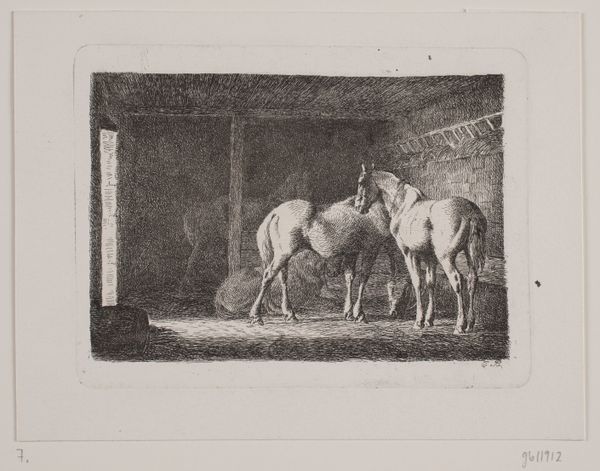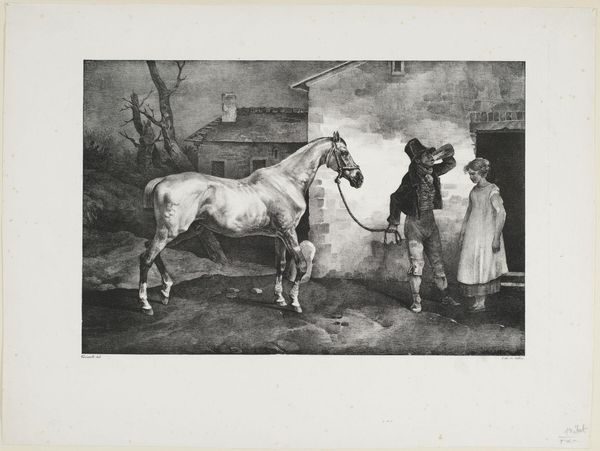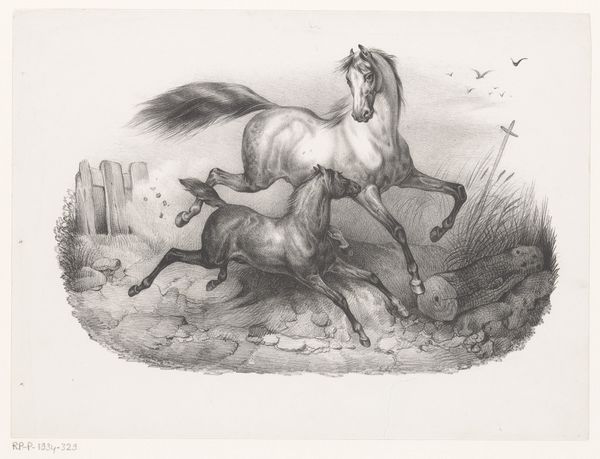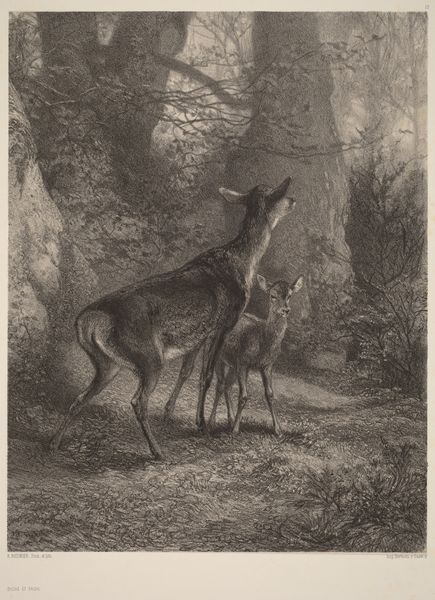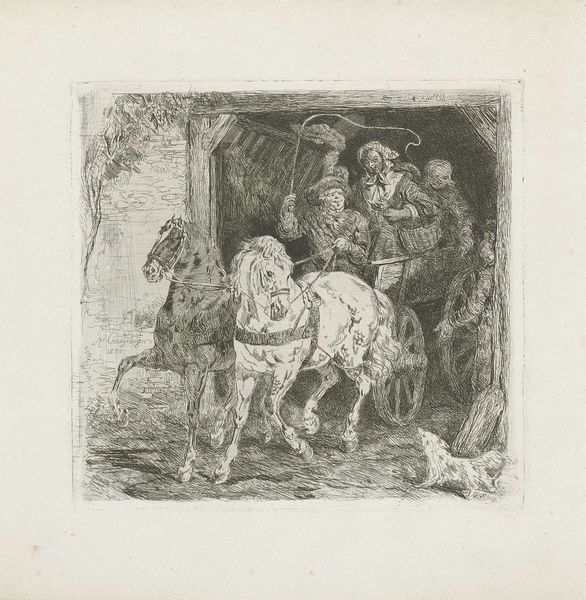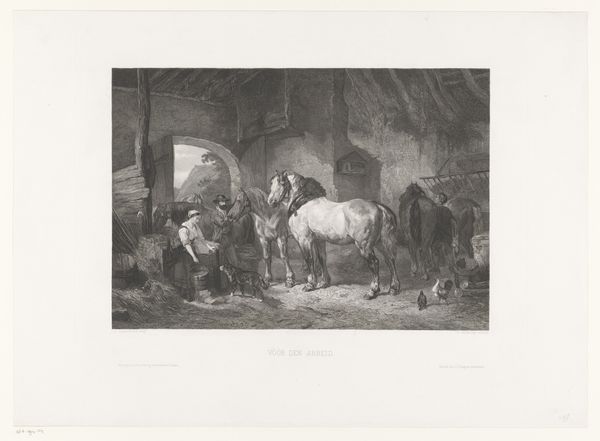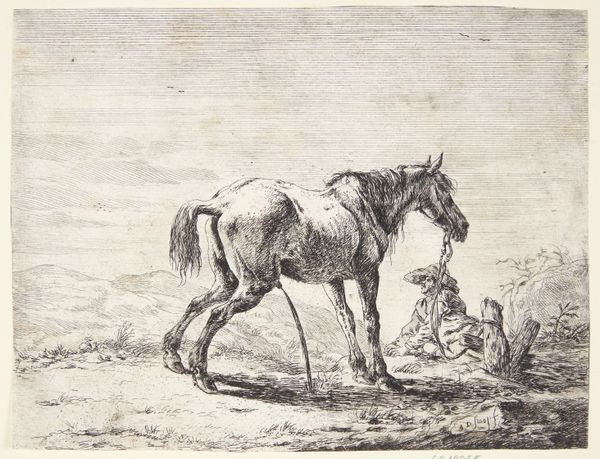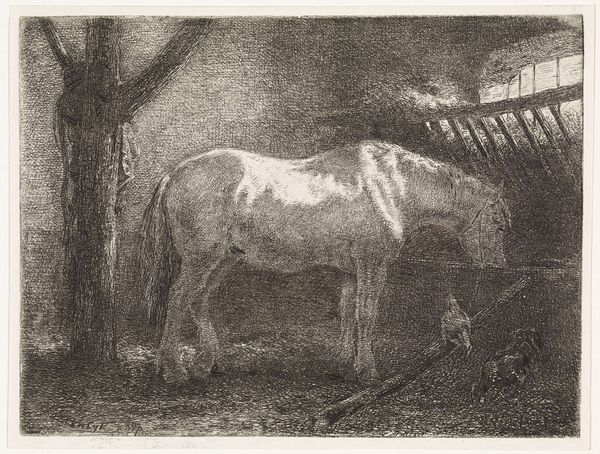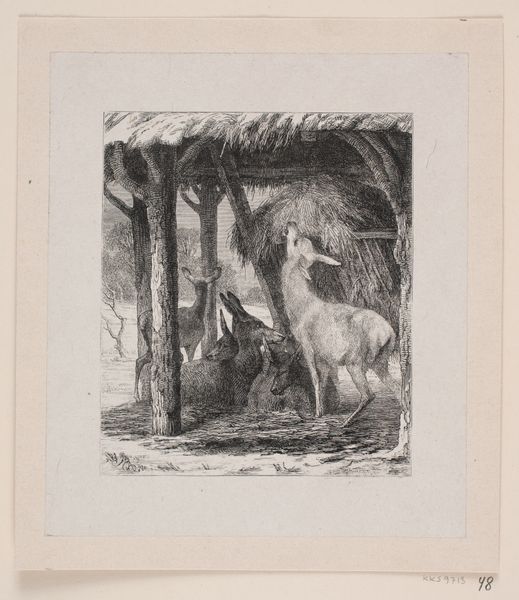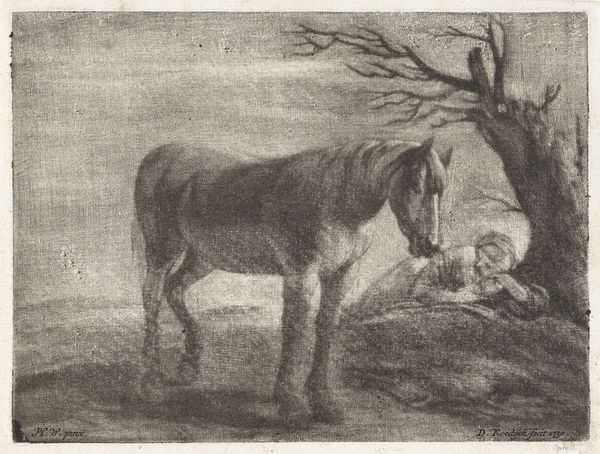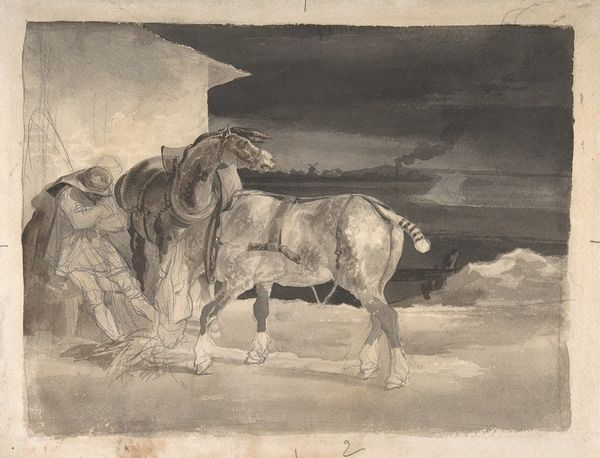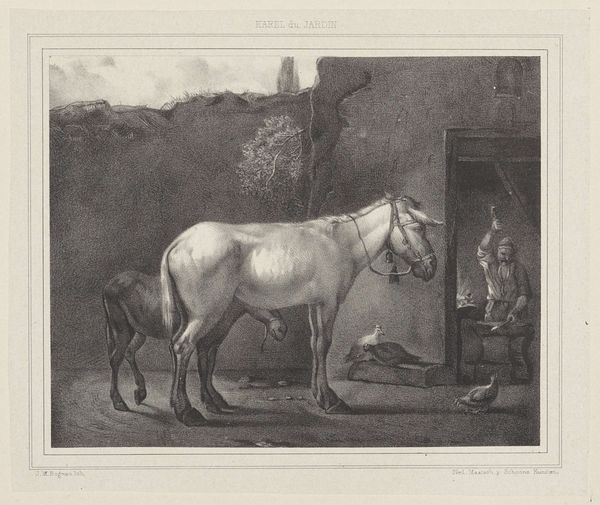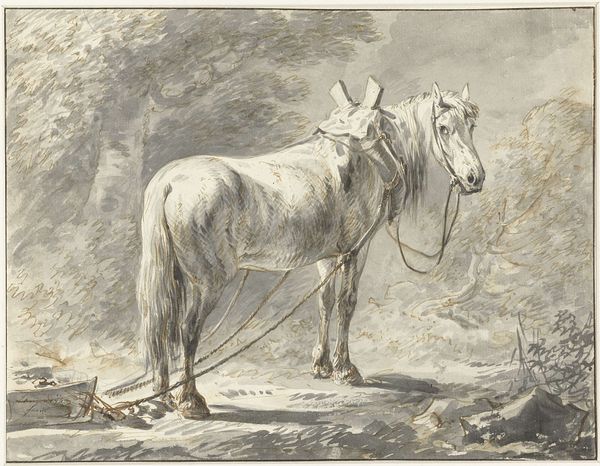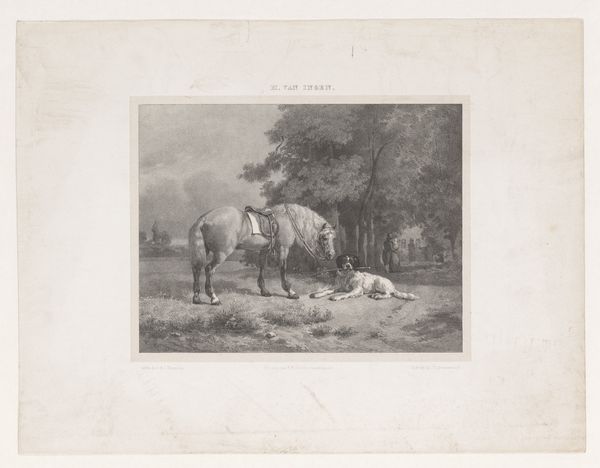
drawing, print, engraving
#
drawing
#
baroque
# print
#
landscape
#
charcoal drawing
#
figuration
#
oil painting
#
engraving
Dimensions: height 144 mm, width 170 mm
Copyright: Rijks Museum: Open Domain
Editor: Here we have Nicolaas Verkolje’s "Pissend paard," created sometime between 1683 and 1746. It's an engraving. It feels like a very intimate and somewhat awkward moment captured, but what stands out to me is how the artist has rendered the form of the horse with such detail using the printmaking medium. What do you see in this piece? Curator: The immediate impression stems from Verkolje's masterful handling of line and tone. Observe the intricate network of cross-hatching; it builds form and describes volume. Consider the semiotic potential within the contrasts of light and shadow. Are these contrasts merely descriptive, or are they also operating on a deeper symbolic level? Editor: That’s interesting. So you’re saying the formal qualities aren't just about depicting a scene but also conveying a certain meaning? Curator: Precisely. Note how the darkness frames the horse, isolating it, accentuating its physicality. The relatively undefined area surrounding the figures enhances this focalization. Are we meant to contemplate merely the act depicted, or perhaps the vulnerability inherent in it? Consider the tension in the horse's stance—the strained muscles conveyed through precise linework. Is there perhaps an implicit metaphor being visually proposed here through the composition and technique? Editor: It's a rather unflattering portrait, actually. And when you point out the isolation and framing, it changes the way I perceive it. Thank you. Curator: Indeed, Verkolje encourages careful visual investigation, transcending the purely representational to probe more profound implications of form. Editor: This piece definitely holds more than meets the eye! Curator: As does all great art when rigorously examined.
Comments
No comments
Be the first to comment and join the conversation on the ultimate creative platform.
